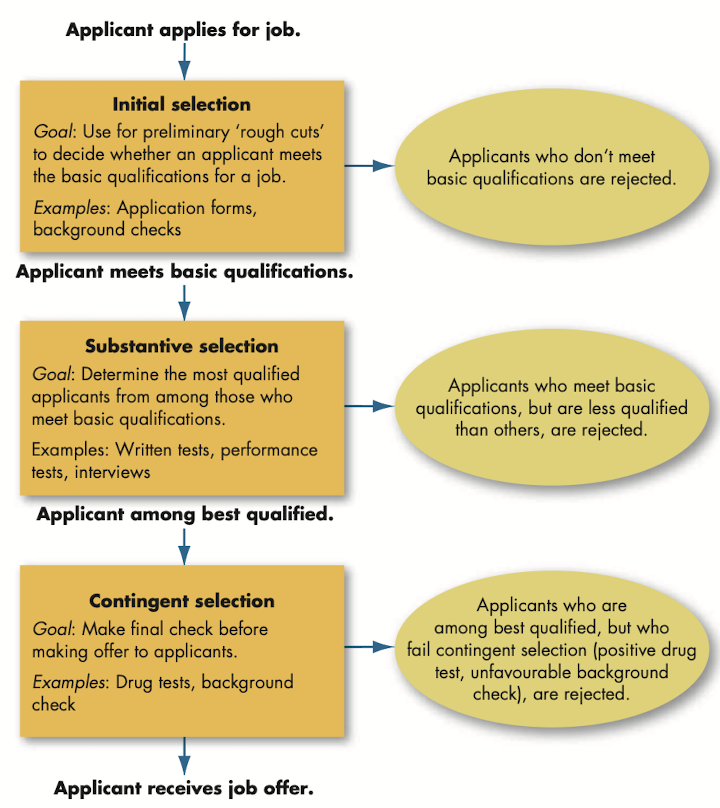Chapter 17 - Human resource policies & practices
Selection practices

Training and development programs
- Four general skill categories
- Basic literacy
- Technical skills
- Inter-personal skills
- Problem-solving skills
- Training methods
- @@Formal training@@
- @@Informal training@@
- @@On-the-job training@@: job rotation, apprenticeships, understudy assignments and formal mentoring programs.
- @@Off-the-job training@@: activities such as live classroom lectures, public seminars, self-study programs, Internet courses, webinars, podcasts and group activities that use role-plays and case studies.
- Three types of behavior that constitute performance at work
- @@Task performance@@: combination of effectiveness and efficiency at doing your core job tasks.
- @@Citizenship@@: actions that contribute to the psychological environment of the organization, such as helping others when not required.
- @@Counter-productivity@@: actions that actively damage the organization, including stealing, behaving aggressively towards co-workers, or being late or absent.
- Methods of performance evaluation
- @@Written essays@@
- @@Critical incidents@@: way of evaluating the behaviors that are key in making the difference between executing a job effectively and executing it ineffectively.
- @@Graphic rating scales@@: evaluation method in which the evaluator rates performance factors on an incremental scale.
- @@Behaviorally anchored rating scales (BARS)@@: scales that combine major elements from the critical incident and graphic rating scale approaches: the appraiser rates the employees based on items along a continuum, but the points are examples of actual behavior on the given job rather than general descriptions or traits.
- @@Forced comparison@@: method of performance evaluation where an employee’s performance is made in explicit comparison to others (e.g., an employee may rank third out of ten employees in her work unit).
- Group order ranking: evaluation method that places employees into a particular classification, such as quartiles.
- Individual ranking: evaluation method that rank-orders employees from best to worst.
